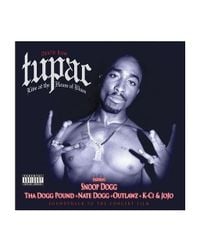It’s been nearly three decades since Wu-Tang Clan stormed the hip-hop world with their raw energy, unfiltered lyricism, and unmistakable iconography. Yet, even now, the group’s story continues to unfold in surprising ways. In a recent interview on The Bootleg Kev Podcast, Ghostface Killah, one of Wu-Tang’s most celebrated members, made headlines with a bold claim: Diddy, the mogul behind Bad Boy Records, played a significant role in getting Wu-Tang Clan banned from the radio during the late 1990s. The revelation has reignited debate about power, influence, and the unseen forces that shape music history.
Ghostface’s account, as reported by The Bootleg Kev Podcast and echoed across outlets like Complex and VICE, is as fascinating as it is contentious. He recalled a pivotal year—1997—when Wu-Tang was touring with Rage Against The Machine. The tour, which could have further elevated Wu-Tang’s profile, was cut short when the group decided to leave early. “We left that tour, and it was messed up because we had to make a decision,” Ghostface explained. “Like, come back to your people over here, or stay over here and get big with these guys… We left.”
The aftermath was anything but smooth. That same year, Wu-Tang performed at Summer Jam, a major New York hip-hop event hosted by Hot 97. During their set, Ghostface led the crowd in a now-infamous “fk Hot 97” chant, an act of defiance that would have lasting repercussions. As Ghostface recounted, “When we left and did the Hot 97, st was a disaster. They cut our records off that day, they didn’t play no Wu st no more. That’s when Puffy was really getting on his st, know what I mean? It just wasn’t the same no more… I cursed them nas out.”
Hot 97, one of the most influential radio stations in hip-hop, promptly blacklisted Wu-Tang Clan. Their tracks vanished from the airwaves, and the group’s relationship with mainstream radio soured. For years, the prevailing narrative was that the Summer Jam incident was solely to blame. But Ghostface now says there was more to the story—a hidden hand guiding the group’s exile from radio rotation.
According to Ghostface, it was only about a year ago—around August 2024—that he learned the full extent of what happened. “RZA told me this like maybe a year ago, and said like, ‘Yo, Puff admitted to saying that he stopped our records up there.’ … So it was all Bad Boy,” Ghostface revealed. “We dropped ‘Triumph,’ no radio play with that st. So it came out that he told the truth, like, ‘Yo, I had to do it.’ … He had the power. I don’t know what he paid ’em, but he had the power. … Listen, we was a threat. We was coming, if ‘Triumph’ was promoted like it was supposed to be and we would have stayed on that radio right there, I think things to right now would have been a little bit different.”
Ghostface’s allegations are significant, not just for what they suggest about Diddy’s influence but for what they reveal about the cutthroat nature of 1990s hip-hop. The late ’90s were a time of seismic change in the genre. Bad Boy Records, led by Diddy—then known as Puff Daddy—was riding high on the commercial success of artists like The Notorious B.I.G. and Mase. Wu-Tang Clan, meanwhile, was coming off the massive critical and cultural impact of Enter the Wu-Tang (36 Chambers) and Wu-Tang Forever, the latter released in 1997. Both labels vied for dominance in a crowded and competitive field.
Despite the tension, it’s worth noting that the relationship between Wu-Tang and Bad Boy never devolved into open warfare. There were no diss tracks flying back and forth, and some members even collaborated across camps—most notably, Method Man’s appearance alongside The Notorious B.I.G. on “The What” in 1994. Still, subtle jabs and competitive posturing were ever-present. Raekwon and Ghostface’s “Shark N***s (Biters)” skit, for example, took aim at unnamed rappers for copying album covers—a not-so-veiled reference to The Notorious B.I.G.’s debut, which mirrored Nas’ Illmatic cover.
Yet, the most public display of animosity came at the 1998 Grammy Awards. Ol’ Dirty Bastard, another Wu-Tang luminary, famously stormed the stage during Shawn Colvin’s acceptance speech, declaring, “Puffy is good, but Wu-Tang is the best. I want you all to know that this is ODB, and I love you all.” The moment, both chaotic and heartfelt, underscored the sense of injustice felt by Wu-Tang and their fans as Diddy’s Forever took home Best Rap Album honors over Wu-Tang Forever.
For Ghostface Killah, the real injury wasn’t just losing out on awards or radio spins—it was the sense that Wu-Tang’s cultural momentum was deliberately stifled. “Listen, we was a threat. We was coming, if ‘Triumph’ would have been promoted like it was supposed to be and we would have stayed on that radio right there, I think things to right now probably would have been a little bit more different,” he said. The single “Triumph,” now considered a classic, received almost no radio play at the time, a fact Ghostface attributes directly to Diddy’s behind-the-scenes machinations.
Of course, Wu-Tang Clan’s legacy has never been defined by radio metrics alone. As VICE put it, “Wu-Tang Clan’s impact can’t be measured by metrics.” Their albums, especially Enter the Wu-Tang (36 Chambers) and Wu-Tang Forever, remain touchstones for hip-hop aficionados. The group’s influence can be seen in everything from fashion to slang to the very structure of rap collectives. In many ways, their outsider status only cemented their mythos.
Still, the revelations about Diddy’s alleged role in their radio exile have cast a new light on old wounds. They also raise broader questions about the power dynamics that have always existed in the music industry. Who gets to decide which voices are amplified and which are silenced? How many careers have been shaped—not by talent or hustle—but by backroom deals and personal vendettas?
Looking forward, Ghostface Killah is channeling his energy into new music. On August 22, 2025, he’s set to release Supreme Clientele 2, a sequel 25 years in the making. The album, part of Nas’s “Legend Has It” series on Mass Appeal Records, promises to be a return to form for the iconic MC. While the full tracklist hasn’t been revealed, fans are already buzzing about possible collaborations with fellow Wu-Tang members and Nas himself.
As the hip-hop world awaits Ghostface’s latest offering, the conversation around radio politics and industry power continues. Wu-Tang Clan’s story, it seems, is still being written—one revelation, one album, one memory at a time.


